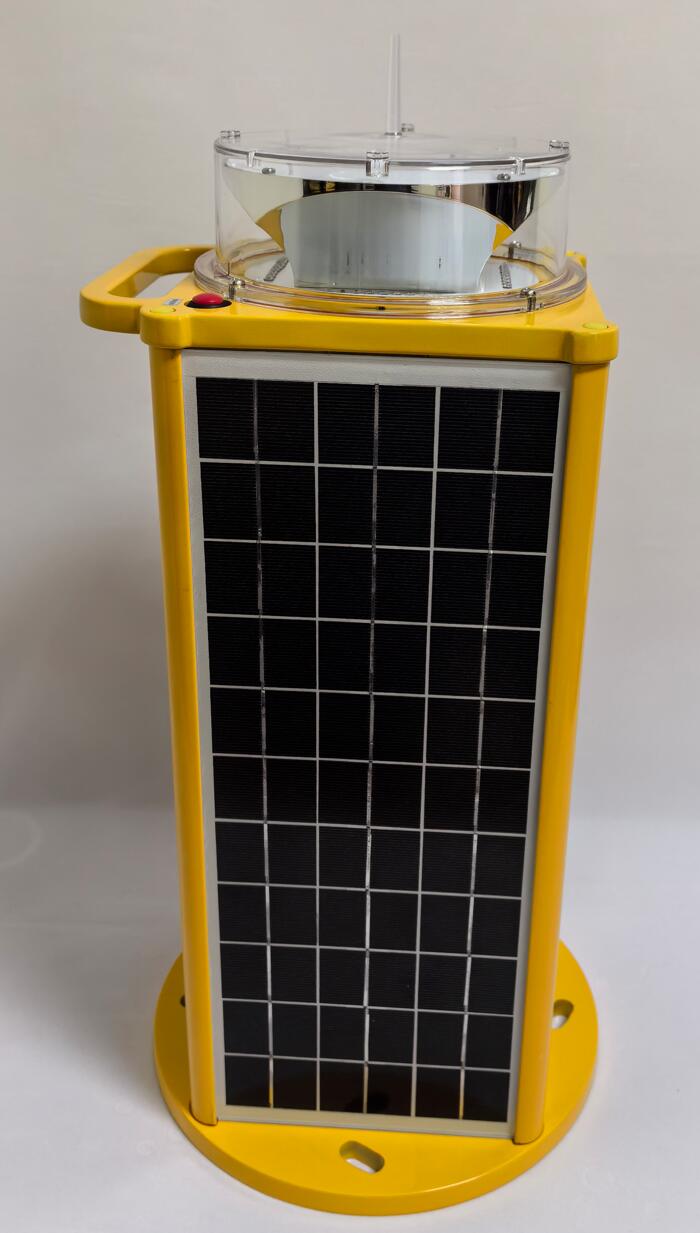Solar Marine Beacon Light: Illuminating the Future of Maritime Navigation
In the vast and often unpredictable world of maritime navigation, safety and reliability are paramount. Among the many tools designed to ensure safe passage for vessels, the solar marine beacon light stands out as a sustainable and efficient solution. Combining advanced solar technology with robust design, these lights have become indispensable for marking hazardous areas, guiding ships, and enhancing visibility in challenging conditions.
What is a Solar Marine Beacon Light?
A solar marine beacon light is a self-contained navigation aid powered by solar energy. It is designed to mark channels, reefs, buoys, and other potential hazards in waterways, ensuring that ships can navigate safely, especially during nighttime or in poor weather conditions. Unlike traditional beacon lights that rely on external power sources or batteries, solar marine beacon lights harness the sun's energy, making them eco-friendly and cost-effective.
Key Features of Solar Marine Beacon Lights
Solar-Powered Efficiency: The primary advantage of these lights is their use of solar panels to convert sunlight into electrical energy. This energy is stored in high-capacity batteries, ensuring continuous operation even during cloudy days or at night.
Durability in Harsh Environments: Solar marine beacon lights are built to withstand extreme weather conditions, including heavy rain, strong winds, and saltwater corrosion. Their rugged construction ensures long-term reliability in marine environments.
Low Maintenance: With no need for external power sources or frequent battery replacements, these lights require minimal maintenance. This makes them ideal for remote or hard-to-reach locations.
Visibility and Range: Equipped with high-intensity LED lights, solar marine beacon lights offer exceptional visibility over long distances. They often feature customizable flash patterns to meet specific navigational requirements.
Eco-Friendly Design: By utilizing renewable solar energy, these lights reduce the carbon footprint associated with traditional navigation aids, aligning with global efforts to promote sustainability.

Applications of Solar Marine Beacon Lights
Harbor and Port Navigation: In busy harbors and ports, solar marine beacon lights help guide vessels safely to their docks, preventing collisions and ensuring smooth traffic flow.
Offshore Hazard Marking: These lights are crucial for marking offshore hazards such as reefs, rocks, and sandbars, which can pose significant risks to ships.
Channel and Waterway Marking: Solar marine beacon lights are used to delineate safe passages in rivers, lakes, and coastal areas, ensuring that vessels stay within navigable waters.
Fishing and Aquaculture: In fishing zones and aquaculture farms, these lights help mark boundaries and safe zones, protecting both vessels and underwater infrastructure.
| solar marine beacon lights |
| solar marine beacon light |
Search and Rescue Operations: During emergencies, solar marine beacon lights can be deployed to mark locations or guide rescue teams, enhancing the efficiency of search and rescue missions.
Advantages Over Traditional Beacon Lights
Energy Independence: Solar marine beacon lights operate independently of external power grids, making them ideal for remote or off-grid locations.
Cost Savings: While the initial investment may be higher, the long-term savings on energy costs and maintenance make solar marine beacon lights a cost-effective choice.
Environmental Impact: By reducing reliance on fossil fuels and disposable batteries, these lights contribute to a cleaner and more sustainable maritime industry.
Ease of Installation: Solar marine beacon lights are often designed for easy installation, requiring minimal infrastructure and no complex wiring.
Challenges and Considerations
Despite their many advantages, solar marine beacon lights are not without challenges. One of the primary concerns is their dependence on sunlight, which can be limited in regions with long periods of overcast weather or during winter months. However, advancements in battery technology have significantly improved their ability to store energy for extended periods.
Another consideration is the initial cost, which can be higher than traditional beacon lights. However, the long-term benefits, including reduced operational costs and environmental impact, often outweigh the initial investment.
The Future of Solar Marine Beacon Lights
As technology continues to evolve, solar marine beacon lights are expected to become even more efficient and versatile. Innovations such as smart sensors, remote monitoring, and integration with GPS systems are likely to enhance their functionality and reliability. Additionally, the growing emphasis on sustainability in the maritime industry will drive further adoption of solar-powered solutions.
The solar marine beacon light represents a significant advancement in maritime navigation, combining sustainability, reliability, and efficiency. By harnessing the power of the sun, these lights provide a dependable solution for marking hazards, guiding vessels, and ensuring safe passage in waterways around the world. As the maritime industry continues to embrace eco-friendly technologies, solar marine beacon lights will play an increasingly vital role in shaping the future of navigation, illuminating the way toward safer and more sustainable seas.
